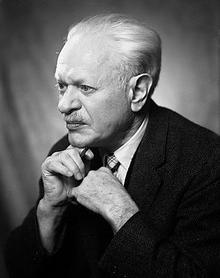Related Research Articles

Rhetoric is the art of persuasion. It is one of the three ancient arts of discourse (trivium) along with grammar and logic/dialectic. As an academic discipline within the humanities, rhetoric aims to study the techniques that speakers or writers use to inform, persuade, and motivate their audiences. Rhetoric also provides heuristics for understanding, discovering, and developing arguments for particular situations.
A sophist was a teacher in ancient Greece in the fifth and fourth centuries BCE. Sophists specialized in one or more subject areas, such as philosophy, rhetoric, music, athletics and mathematics. They taught arete, "virtue" or "excellence", predominantly to young statesmen and nobility.
Stanley Eugene Fish is an American literary theorist, legal scholar, author and public intellectual. He is currently the Floersheimer Distinguished Visiting Professor of Law at Yeshiva University's Benjamin N. Cardozo School of Law in New York City. Fish has previously served as the Davidson-Kahn Distinguished University Professor of Humanities and a professor of law at Florida International University and is dean emeritus of the College of Liberal Arts and Sciences at the University of Illinois at Chicago.

Communication theory is a proposed description of communication phenomena, the relationships among them, a storyline describing these relationships, and an argument for these three elements. Communication theory provides a way of talking about and analyzing key events, processes, and commitments that together form communication. Theory can be seen as a way to map the world and make it navigable; communication theory gives us tools to answer empirical, conceptual, or practical communication questions.

Wayne Clayson Booth was an American literary critic and rhetorician. He was the George M. Pullman Distinguished Service Professor Emeritus in English Language & Literature and the College at the University of Chicago. His work followed largely from the Chicago school of literary criticism.

Kenneth Duva Burke was an American literary theorist, as well as poet, essayist, and novelist, who wrote on 20th-century philosophy, aesthetics, criticism, and rhetorical theory. As a literary theorist, Burke was best known for his analyses based on the nature of knowledge. Further, he was one of the first individuals to stray from more traditional rhetoric and view literature as "symbolic action."

Ethos is a Greek word meaning 'character' that is used to describe the guiding beliefs or ideals that characterize a community, nation, or ideology; and the balance between caution, and passion. The Greeks also used this word to refer to the power of music to influence emotions, behaviors, and even morals. Early Greek stories of Orpheus exhibit this idea in a compelling way. The word's use in rhetoric is closely based on the Greek terminology used by Aristotle in his concept of the three artistic proofs or modes of persuasion alongside pathos and logos. It gives credit to the speaker, or the speaker is taking credit.
Intertextuality is the shaping of a text's meaning by another text, either through deliberate compositional strategies such as quotation, allusion, calque, plagiarism, translation, pastiche or parody, or by interconnections between similar or related works perceived by an audience or reader of the text. These references are sometimes made deliberately and depend on a reader's prior knowledge and understanding of the referent, but the effect of intertextuality is not always intentional and is sometimes inadvertent. Often associated with strategies employed by writers working in imaginative registers, intertextuality may now be understood as intrinsic to any text.
Pathos appeals to the emotions and ideals of the audience and elicits feelings that already reside in them. Pathos is a term used most often in rhetoric, as well as in literature, film and other narrative art.
Richard Alan Lanham is an American literary scholar. He has written on writing style and rhetoric.

Digital rhetoric can be generally defined as communication that exists in the digital sphere. As such, digital rhetoric can be expressed in many different forms, including text, images, videos, and software. Due to the increasingly mediated nature of our contemporary society, there are no longer clear distinctions between digital and non-digital environments. This has expanded the scope of digital rhetoric to account for the increased fluidity with which humans interact with technology.

Rhetoric of science is a body of scholarly literature exploring the notion that the practice of science is a rhetorical activity. It emerged after a number of similarly oriented topics of research and discussion during the late 20th century, including the sociology of scientific knowledge, history of science, and philosophy of science, but it is practiced most typically by rhetoricians in academic departments of English, speech, and communication.
Patricia Bizzell is a professor of English, emerita, and former Chairperson of the English Department at the College of the Holy Cross, United States, where she taught from 1978 to 2019. She founded and directed the Writer's Workshop, a peer tutoring facility, and a writing-across-the-curriculum program. She directed the College Honors and English Honors programs and taught first-year composition, rhetoric and public speaking, nineteenth-century American literature, and women's literature. A scholar and writer, Bizzell has authored or co-authored half a dozen books, written dozens of articles and book chapters, composed more than a dozen book reviews and review essays, and presented a large number of papers at academic conferences. Bizzell is the 2008 winner of the CCCC Exemplar Award, and former president of Rhetoric Society of America.
Gary A. Olson is a scholar of rhetoric and culture, a literary biographer, and president of Daemen University. He has served as provost and vice president for academic affairs at Idaho State University, dean of the College of Arts and Sciences at Illinois State University, and chief academic officer at the University of South Florida, St. Petersburg.

Neo-Aristotelianism is a view of literature and rhetorical criticism propagated by the Chicago School — Ronald S. Crane, Elder Olson, Richard McKeon, Wayne Booth, and others — which means:
"A view of literature and criticism which takes a pluralistic attitude toward the history of literature and seeks to view literary works and critical theories intrinsically."
Lee Edelman is an American literary critic and academic. He is a professor of English at Tufts University. He is the author of four books.

Native American rhetoric is the rhetoric used by Indigenous peoples for purposes of self-determination and self-naming, in academia and a variety of media.
Phyllis Trible is a feminist biblical scholar from Richmond, Virginia, United States. Trible's scholarship focuses on the Hebrew Bible and she is noted for her prominent influence on feminist biblical interpretation. Trible has written a multitude of books on interpretation of the Hebrew Bible, and has lectured around the world, including the United States, New Zealand, Australia, Japan, Canada, and a number of countries in Europe.

Anthony Edward Schiappa, Jr. is an American scholar of communication and rhetoric, currently Professor of Comparative Media Studies/Writing at the Massachusetts Institute of Technology, where he holds the John E. Burchard Chair of Humanities; from 2013 to 2019, he also served as the program's Head. Previously, he spent seventeen years in the Communication Studies Department at the University of Minnesota, the last seven of which he served as chair. He is the author of eight books and numerous articles that have appeared in classics, communication, English/Composition, philosophy, psychology, and law journals.
In literary criticism and cultural studies, postcritique is the attempt to find new forms of reading and interpretation that go beyond the methods of critique, critical theory, and ideological criticism. Such methods have been characterized as a "hermeneutics of suspicion" by Paul Ricœur and as a "paranoid" or suspicious style of reading by Eve Kosofsky Sedgwick. Proponents of postcritique argue that the interpretive practices associated with these ways of reading are now unlikely to yield useful or even interesting results. As Rita Felski and Elizabeth S. Anker put it in the introduction to Critique and Postcritique, "the intellectual or political payoff of interrogating, demystifying, and defamiliarizing is no longer quite so self-evident." A postcritical reading of a literary text might instead emphasize emotion or affect, or describe various other phenomenological or aesthetic dimensions of the reader's experience. At other times, it might focus on issues of reception, explore philosophical insights gleaned via the process of reading, pose formalist questions of the text, or seek to resolve a "sense of confusion."
References
- ↑ J. Paul Sampley; Peter Lampe (20 June 2013). Paul and Rhetoric. Bloomsbury Publishing. pp. 172–. ISBN 978-0-567-12862-1.
- ↑ Fish, Stanley (1999). Professional Correctness: Literary Studies and Political Change. Cambridge, MA: Harvard University Press. p. 160. ISBN 978-0674712201.
- ↑ Alister McGrath (26 July 2010). The Passionate Intellect: Christian Faith and the Discipleship of the Mind. InterVarsity Press. pp. 194–. ISBN 978-0-8308-3843-1.
- ↑ Michael Robertson (7 August 2014). Stanley Fish on Philosophy, Politics and Law: How Fish Works. Cambridge University Press. pp. 21–. ISBN 978-1-107-07474-3.
- ↑ Ulf Schulenberg (2007). Lovers and Knowers: Moments of the American Cultural Left. Winter. ISBN 978-3-8253-5347-6.
- ↑ Walhout, Mark. "Rhetorical Faith: the Literary Hermeneutics of Stanley Fish.(and "Justifying Belief. Stanley Fish and the Work of Rhetoric") (Book Review)". Christianity and Literature, January 1, 2003
- ↑ West, Thomas (Winter 2004). "Review of "Justifying Belief: Stanley Fish and the Work of Rhetoric" by Gary Olson". College Literature. 31 (1): 196–99. doi:10.1353/lit.2004.0013. JSTOR 25115182.
- ↑ Maillet, Greg (Summer 2004). "Review Essay". Religion and Literature. 36 (2): 143–47. Retrieved 30 January 2012.
- ↑ Schulenberg, Ulf (2004). "Review of "Justifying Belief: Stanley Fish and the Work of Rhetoric" by Gary Olson". American Studies. 49 (1): 130–34. JSTOR 41157924.